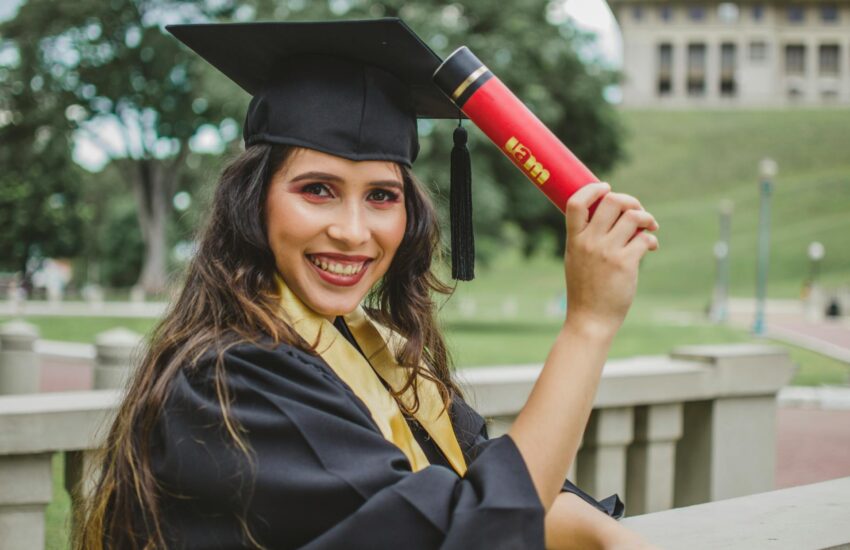Unlocking Progress Through Education: UN Initiatives You Should Know
Education is the rocket fuel of progress. It empowers individuals and societies to not just survive but to thrive and invent solutions to the world’s biggest challenges. Recognizing this critical role, the United Nations (UN) is a champion for global education and research.
This blog post dives into the treasure trove of scholarships, grants, and resources offered by various UN agencies to fuel your educational and research aspirations:
1. United Nations Educational, Scientific and Cultural Organization (UNESCO):
Imagine a world where knowledge transcends borders. That’s the vision of UNESCO, a UN agency fostering international collaboration in education, science, culture, and communication. They offer scholarships and fellowships to students, researchers, and professionals, particularly those from developing countries. These opportunities span diverse fields like natural sciences, social sciences, culture, and education – all geared towards boosting research and building expertise.
2. United Nations Development Programme (UNDP):
The fight against poverty, inequality, and environmental challenges is at the heart of the UNDP’s mission. Through its programs and initiatives, the UNDP supports education and research in critical areas like climate change, gender equality, good governance, and sustainable development. This translates into scholarships, grants, and technical assistance, all designed to cultivate innovation and knowledge-sharing for a better tomorrow.

3. United Nations Children’s Fund (UNICEF):
UNICEF champions the rights and well-being of every child on Earth. Partnering with other organizations, UNICEF offers scholarships, grants, and fellowships to support research and initiatives that improve children’s access to education, healthcare, protection, and brighter futures. These opportunities target individuals or organizations working on solutions to the key challenges facing children and young people.
4. United Nations University (UNU):
Think global think tank meets postgraduate education – that’s the UNU in a nutshell. This unique organization conducts research and training on pressing global issues. Its network of institutes and programs offers scholarships, fellowships, and research opportunities for students and scholars from a wide range of backgrounds. Areas of focus include peace and governance, sustainable development, global health, and technological innovation.
5. United Nations Academic Impact (UNAI):
UNAI is a powerful bridge between universities and the UN. It connects higher education institutions with the UN’s goals and mandates, allowing them to contribute and access resources. Through UNAI, universities and research institutions gain access to funding opportunities, collaborative platforms, and UN resources and expertise to tackle global challenges. This could involve grants, partnerships, and the chance to directly tap into UN knowledge.
So, if you’re passionate about making a difference through education and research, explore the UN’s incredible resources. With the right tools and knowledge, you can become a force for positive change in our world.
6. United Nations Fund for International Partnerships (UNFIP)
UNFIP facilitates partnerships between the UN system, governments, academia, and the private sector to support innovative solutions for sustainable development. Through its funding mechanisms and collaborative initiatives, UNFIP provides support for education and research projects that contribute to the achievement of the Sustainable Development Goals (SDGs). This may include scholarships, grants, and technical assistance for capacity-building and knowledge exchange.
7. United Nations Scholarships and Fellowships Database
In addition to the specific programs mentioned above, the United Nations maintains a comprehensive database of scholarships, fellowships, and other funding opportunities offered by various UN agencies, as well as external organizations and governments. This database serves as a valuable resource for students, researchers, and professionals seeking financial support for their education and research endeavors. Users can search for opportunities based on criteria such as field of study, level of education, and eligibility criteria, making it easier to find relevant funding sources.

8. Capacity-Building Initiatives
Many UN agencies and programs place a strong emphasis on capacity-building in developing countries, recognizing the importance of empowering individuals and institutions to address local challenges and contribute to global progress. Through training programs, workshops, and technical assistance initiatives, the UN supports the development of skills, knowledge, and infrastructure needed to advance education and research in areas such as healthcare, agriculture, environmental conservation, and technology innovation. These capacity-building efforts complement scholarship and grant programs by providing support for long-term institutional development and sustainability.
9. Research Partnerships and Collaborations
The UN actively fosters partnerships and collaborations between researchers, institutions, and stakeholders across different sectors and regions. Through joint research projects, networks, and consortia, the UN facilitates knowledge-sharing, innovation, and interdisciplinary approaches to addressing complex global issues. These partnerships often involve multiple stakeholders, including academia, government agencies, non-governmental organizations (NGOs), and the private sector, leveraging diverse expertise and resources to generate impactful solutions. By promoting collaboration and cooperation, the UN enhances the quality and relevance of research outcomes and strengthens the global research ecosystem.
10. Advocacy and Policy Influence
In addition to providing direct support for education and research, the UN plays a crucial role in advocating for policies and initiatives that promote access to quality education, scientific research, and innovation. Through its advocacy efforts, the UN raises awareness of the importance of education and research in achieving sustainable development goals and mobilizes support from governments, donors, and other stakeholders. By influencing policy agendas and priorities at the national and international levels, the UN helps create an enabling environment for investment in education and research, ensuring that these critical areas receive the attention and resources they deserve.
Demystifying Eligibility: Who Can Apply?
Eligibility criteria for UN scholarships, grants, and resources vary depending on the specific program. However, some general prerequisites often include:
- Citizenship: Many programs prioritize students from developing countries, particularly LDCs and SIDS.
- Academic Background: Strong academic records are typically required, with specific grade point averages (GPA) stipulated for some programs.
- Field of Study: Programs often target specific disciplines relevant to the UN’s goals, such as sustainable development, human rights, and climate change.
- Work Experience: Some programs might require relevant work experience in a related field.
It’s crucial to meticulously review the eligibility criteria for each program you’re interested in. Program websites or designated focal points can provide additional details and clarify any doubts.

Charting Your Course: The Application Process
The application process for UN scholarships, grants, and resources typically involves the following steps:
-
Research and Identify Programs: Explore the websites and resources mentioned in this article to discover programs that align with your academic interests and career goals.
-
Review Eligibility Criteria: Carefully assess if you meet the program’s specific requirements.
-
Gather Necessary Documents: This may include transcripts, recommendation letters, essays outlining your goals, and proof of English language proficiency (if required).
-
Complete the Application Form: Thoroughly fill out the application form, ensuring all information is accurate and complete. Pay close attention to deadlines as late applications are usually disregarded.
-
Submit your Application: Double-check your application before submission. Some programs have online portals, while others require physical mail submissions.
-
Await Results: Be patient as the selection process might take time. Stay informed by checking the program website or contacting the designated focal point.
Beyond Scholarships: Resources for Lifelong Learning
The UN recognizes that scholarships and grants are just one piece of the puzzle. They offer a wealth of additional resources to support your educational journey:
-
Online Learning Platforms: The UN System Staff College (UNSSC) and other UN entities provide online courses and training programs on various topics. These courses can enhance your knowledge and professional skills.
-
Open Educational Resources (OERs): The UN supports the development and dissemination of OERs, which are freely available educational materials. Websites like the UN OER repository offer a treasure trove of resources for self-directed learners.
-
Libraries and Archives: UN libraries worldwide provide access to a vast collection of research materials and publications. They can be invaluable resources for in-depth studies and research projects.
Beyond the UN: Expanding Your Scholarship Horizons
While the UN offers a robust set of opportunities, your scholarship search shouldn’t end there. Here are some additional avenues to explore:
-
Government Scholarships: Many national governments offer scholarships for international students, particularly in specific fields aligned with their development goals. Research scholarship programs offered by your home country and potential host countries for your studies.
-
International Organizations: Several international organizations, such as the Commonwealth Scholarship Commission and the Organization of American States (OAS), provide scholarships for students from member countries.
-
Foundations and NGOs: Numerous foundations and Non-Governmental Organizations (NGOs) offer scholarships focused on social justice, environmental sustainability, and other critical issues. Explore foundations working in your field of interest.
-
University Scholarships: Many universities worldwide offer scholarships specifically for international students. Research scholarships directly offered by universities you’re interested in attending.
Building a Compelling Application: Standing Out from the Crowd
A competitive application package can significantly increase your chances of securing a scholarship or grant. Here are some strategies to enhance your application:
-
Craft a compelling personal statement: This is your chance to showcase your academic achievements, research interests, and future aspirations. Highlight your passion for the program’s goals and how you envision contributing to the field.
-
Seek Strong Recommendation Letters: Choose recommenders who can speak to your academic abilities, work ethic, and potential for success. Provide them with relevant information to craft impactful letters.
-
Demonstrate Leadership Potential: Showcase your leadership qualities through extracurricular activities, volunteer work, or any initiatives you’ve spearheaded.
-
Tailor Your Application: Avoid generic applications. Tailor your application materials to each program, highlighting how your qualifications align with the program’s specific objectives and research areas.
-
Proofread Meticulously: Typos and grammatical errors can create a negative impression. Ensure your application is error-free by proofreading multiple times or seeking help from a trusted source.
Networking: Building Bridges to Success
Networking can be a valuable tool in your scholarship pursuit. Here are some ways to connect with others and gain valuable insights:
-
Connect with Alumni: Reach out to past scholarship recipients or program graduates. They can share their experiences and provide valuable advice on the application process.
-
Attend Information Sessions: Many scholarship providers hold online or in-person information sessions. This allows you to learn more about the program, ask questions, and network with program representatives.
-
Join Online Forums and Communities: Connect with other aspiring scholars online. Share experiences, ask questions, and offer support in online forums dedicated to scholarships and educational opportunities.
Funding Your Education: Exploring Financial Aid Options
Obtaining a scholarship or grant may not cover all your education expenses. Here are some additional financial aid options to consider:
-
Student Loans: Many countries offer student loan programs to help finance higher education. Carefully research loan options, considering interest rates and repayment terms. Pursue government-backed loans whenever possible for the most favorable terms.
-
Work-Study Programs: Some universities offer work-study programs that allow you to earn income while pursuing your studies. Explore such programs during your university application process.
-
Crowdfunding Platforms: Crowdfunding platforms allow you to raise funds directly from others. This option requires effort in creating a compelling campaign but can be successful with a strong network and clear explanation of how the funds will be used for your education.
-
Freelance Work: If your skills and experience allow, freelance work can be a source of income to supplement your educational expenses. Explore freelance platforms for opportunities in your field.
Remember, a combination of scholarships, grants, and financial aid strategies can pave the way for a successful academic journey.
Conclusion: Investing in a Brighter Future
Education and research are powerful tools for positive change. By leveraging the resources offered by the UN, along with other scholarship opportunities and financial aid options, you can invest in your future and contribute to building a more just and equitable world.
Take the initiative, explore possibilities, and embark on a rewarding educational journey. Remember, your dedication and perseverance can unlock a world of opportunities to make a positive impact.
This guide equips you with the knowledge and resources to navigate the landscape of UN scholarships, grants, and educational resources. With dedication and strategic planning, you can turn your academic aspirations into reality and become a catalyst for positive change in the world.



